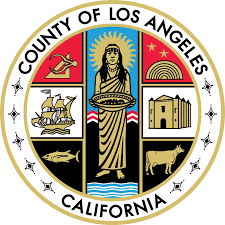In a first-in-the-nation move, the Los Angeles County Board of Supervisors yesterday approved a motion to develop new guidelines regarding reimbursement of administrative costs to nonprofits that are contracted to deliver services on behalf of government.
“Los Angeles County has now raised the bar for collaboration between governments and nonprofits by stating its firm stance that its nonprofit partners must be paid the full cost to deliver services that the county contracts with them to provide,” said Tim Delaney, president and CEO of the National Council of Nonprofits.
The motion by Supervisor Hilda Solis, and co-authored by Supervisor Sheila Kuehl, aims to strengthen nonprofit service in the county by supporting the implementation of new federal rules governing how government agencies reimburse nonprofits for the full cost of their work. “By ensuring we are covering the full and reasonable cost for their services, we can in turn help our nonprofit partners better serve their constituents and fulfill their important and irreplaceable missions,” Solis said in a statement.
Under the motion, County Chief Executive Sachi Hamai will provide an implementation strategy to the board within 120 days, consult with leaders from county nonprofits in developing the new guidelines, and send a letter signed by all five supervisors urging state leadership on the federal rules. The action by the Board of Supervisors is the first of its kind in the country.
The Office of Management and Budget (OMB) Uniform Guidance went into effect Dec. 26, 2014, requiring governments at all levels that hired nonprofits to deliver services to reimburse them for reasonable indirect costs they incur on behalf of governments when federal dollars are part of the funding. Nonprofits must be allowed a minimum 10 percent indirect cost rate for all grants involving federal dollars. Pass-through entities must honor any rate negotiated by a nonprofit.
The guidance merged eight different sets of rules and is intended to provide consistency throughout all levels of government. In addition to easing administrative burdens, increasing accountability and strengthening oversight of how government dollars are invested, the guidance also requires government agencies that contract with nonprofits to reimburse them for reasonable indirect costs.
“Research shows that for too long, governments at all levels that hire nonprofits to perform services have been shortchanging nonprofits, forcing foundations and individuals to subsidize the funding gaps when governments fail to pay their fair share,” Delaney said. “We applaud the LA County Supervisors for their leadership in being the first local officials in the nation to formally declare that all governments entering into written agreements with nonprofits to deliver services to the public have an affirmative duty to pay their fair share of the costs that those nonprofits incur,” he said.
“The county’s commitment to ensuring greater full-cost recovery is an important win-win for both government and nonprofits, and most importantly, for the communities we all care about,” said Fred Ali, president and CEO of the Weingart Foundation in Los Angeles. “The fact that Los Angeles County is home to more nonprofits than any municipality in the country makes this a particularly important step forward, and hopefully a model across the nation for effective public-private partnership,” he said.
In the year since the release of the Uniform Guidance, Weingart Foundation, the California Association of Nonprofits and the state’s three leading regional grantmaking associations have collaborated on a campaign called the “California Full Cost Initiative.” The campaign aims to educate funders and nonprofits about the changes in the Uniform Guidance and explore ways to develop new grantmaking practices based on the real cost of delivering meaningful and sustainable outcomes.
The action by the Board of Supervisors comes following the recent release of a report by the Urban Institute that highlights significant problems California nonprofits face when managing multiple government and private contracts and grants, including routine underpayment of the full cost of the work.
The report noted that about seven in 10 nonprofits in California nonprofit executives said the government funding received fails to cover the real cost of their services, according to the report. Nonprofits face four additional challenges:
- Complex application requirements;
- Time-consuming and duplicative reporting requirements;
- Changes to already approved contracts and grants; and,
- Late payments for services rendered.









